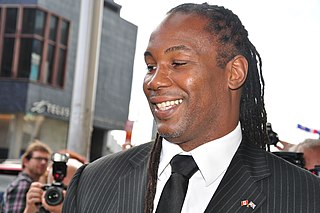A Quote by Rowan Williams
One of the most powerful defences the media can offer for controversial actions is, of course, public interest.
Quote Topics
Related Quotes
An enormous amount of modern ingenuity is expended on finding defences for the indefensible conduct of the powerful. As I have said above, these defences generally exhibit themselves most emphatically in the form of appeals to physical science. And of all the forms in which science, or pseudo-science, has come to the rescue of the rich and stupid, there is none so singular as the singular invention of the theory of races.
People tend to assess the relative importance of issues by the ease with which they are retrieved from memory—and this is largely determined by the extent of coverage in the media. Frequently mentioned topics populate the mind even as others slip away from awareness. In turn, what the media choose to report corresponds to their view of what is currently on the public’s mind. It is no accident that authoritarian regimes exert substantial pressure on independent media. Because public interest is most easily aroused by dramatic events and by celebrities, media feeding frenzies are common
When governments go too far to punish people for actions that are dissent rather than a real threat to the nation, they risk delegitimizing not just their systems of justice, but the legitimacy of the government itself. Because when they bring political charges against people for acts that were clearly at least intended to work in the public interest, they deny them the opportunity to mount a public-interest defense.
Now listen to the first three aims of the corporatist movement in Germany, Italy and France during the 1920s. These were developed by the people who went on to become part of the Fascist experience: (1) shift power directly to economic and social interest groups; (2) push entrepreneurial initiative in areas normally reserved for public bodies; (3) obliterate the boundaries between public and private interest -- that is, challenge the idea of the public interest. This sounds like the official program of most contemporary Western governments.
Boxing always was corrupt and always will be corrupt. The three world champion's belts really are absurd. One single association would make this business more reputable. Just as powerful as the promoters, is the media. The cable networks control the cash flow. You can?t ignore the influence the media and the promoters have on the sport. They have a financial objective - high ratings, selling pay-per-views and selling out arenas. Because of the system, the public may not be seeing the best the sport has to offer, but what sells.
We are not just scientists, but human beings as well. Like most people we’d like to see the world a better place, which in this context translates into our working to reduce the risk of potentially disastrous climatic change. To do that we need to get some broad-based support, to capture the public’s imagination. That, of course, entails getting loads of media coverage. So we have to offer up scary scenarios, make simplified, dramatic statements, and make little mention of any doubts we might have.
Take a look at the current debates in Washington, and of course, everything in the media. Only one issue is discussed: the deficit - the least significant issue, but the most significant issue for the banks. The big problem, joblessness, is barely discussed, even though that's what the public wants, as polls clearly show. That's even what the business press supports, but the financial institutions are so powerful that the only issue is the deficit, and this runs right through the intellectual culture.





































